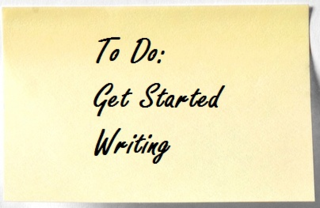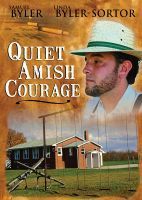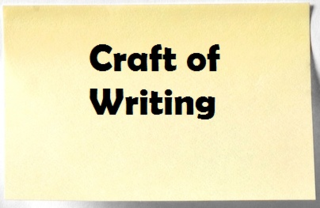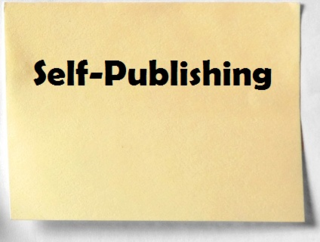Rob Bignell's Blog, page 368
June 22, 2013
How to find time to write your next book
If you  want to be a published writer, you’ll need to write regularly. After all, you can’t publish a novel, a short story or a how-to book if you haven’t finished it.
want to be a published writer, you’ll need to write regularly. After all, you can’t publish a novel, a short story or a how-to book if you haven’t finished it.
That’s easier said than done, of course. Most of us must balance our writing time against career, family, friends, house chores and more.
But hours at the office and the needs of children at home need not prevent us from completing our dream book.
So how do you create that “balance”?
First, you must establish a routine, a time every day when you will write undisturbed, if only for a half-hour. That period should occur at roughly the same time every day. It may mean getting up a half-hour earlier or going to sleep a half-hour later. It may be that half-hour lunch break at work. It may be during the half-hour nap your preschooler takes every afternoon. If your children are older or you’re an empty-nester, require others to build their schedules around you for this time. After several weeks of writing a half-hour every day, you’ll soon amass quite a number of written pages.
Some authors have told me that if they write for a specified time period, they spend most of their time thinking about what to write rather than actually getting words on a page. If you face the same obstacle and have a little more leeway with your time, instead write to a specific word count or page count.
At the risk of sounding contradictory, some authors say if they write to a specific word or page count, they write a lot of junk that later has to be trashed, and so it seems like a waste of time and effort. Don’t worry about “wasted” writing, though. Consider that football players don’t complain about tackle drills and running plays in practice as “wasted” time since they’re not playing a real game – they’re simply developing their skills.
Regardless of which approach you choose, don’t stop “writing” when your time period is over or once you’ve reached your word count goal. Keep thinking about your story when jogging, vacuuming, folding laundry, commuting, changing a diaper, waiting for the next meeting to begin, sitting at the doctor’s office and so on. Ask yourself what will happen next in the story, imagine a scene, build a character’s background. Carry a notepad with you to jot notes or to make outlines.
Once you sit did again to write again, you’ll then have something to work with so you can make your limited time even more productive!
Need an editor? Having your book, business document or academic paper proofread or edited before submitting it can prove invaluable. In an economic climate where you face heavy competition, your writing needs a second eye to give you the edge. I can provide that second eye.
Related articles
 Five quotations about the business of writing
Five quotations about the business of writing
June 21, 2013
Where to send media kit promoting your book
Organizing a media kit about your book or event is only half of the process in promoting yourself. The other half is distributing it.
media kit about your book or event is only half of the process in promoting yourself. The other half is distributing it.
Your distribution philosophy should be simple: Get the media kits in the hands of editors and writers who’ll be most interested in giving you or your book coverage.
Begin by compiling a list of who might be interested. Among those people are:
g Media (newspapers, magazines, radio station and television news reporters, bloggers, websites) that cover community in which you live
g Media in communities where you used to live/work
g Media in communities that cover where you attended school (both high school and college)
g Media in communities mentioned in the book
g Media that cover topics addressed in your book (such as outdoors magazines if the book is about rock climbing)
g Clubs interested in topics addressed in your book
g Press release distributors (Many companies will post your press release for free online; type “free press release distribution” into a search engine for a current list of distributors.)
If your press release is about an event, focus exclusively on media that cover the area where the event will be held.
When sending the media kit, try to find names and email of a specific reporter or editor who deals with the topics or covers the geographical area related to your address.
Also, for each media kit sent, you likely will need to rewrite the press release’s lede (its opening paragraph) or a closing paragraph, connecting the press release to the geographical area or the topic that you had in mind when sending it.
Send the media kit at least a week before any upcoming event. If announcing the results of an event (such as the publication of your book or the receipt of an award), send the media kit immediately after – usually within a day – of the event.
Finding email and snail mail addresses of media and clubs interested in covering you or your book will take some time. For mainstream media, begin by typing “media contact list” into a search engine, You can purchase media contact lists, but to keep your expenses low, simply use the list as a starting point and go directly to the media outlet’s website. You’ll have to dig around, but usually there’s a list of staff with contact information on the website.
For blogs (and non-mainstream media websites), type “blogs” or “websites” plus a keyword that describes what your book is about. For example, if you’ve written a hiking book, type “hiking blogs” or “hiking websites” into a search engine. You’ll probably have to go to several different blogs and websites to find the ones that would be most interested.
For clubs, type “clubs” plus that descriptive keyword into a search engine. You’ll probably have to go to several websites and dig around to find contact information.
While doing this groundwork, begin compiling a list of media contacts that you can use for sending out future media kits. Remember that these lists will have to be periodically updated as staff members change, blogs go defunct, and clubs elect new officers.
Sending out the media kit is fairly easy. Simply email it, with the press release as the body text of your email and the other materials, such as photographs, as attachments. Be forewarned that some media will not open attachments, and a few who are interested will want you to send paper copies of your book.
Need an editor? Having your book, business document or academic paper proofread or edited before submitting it can prove invaluable. In an economic climate where you face heavy competition, your writing needs a second eye to give you the edge. I can provide that second eye.
Related articles
 Use social media to market your book
Use social media to market your book Tweet your book to popularity
Tweet your book to popularity Volume One features '7 Minutes a Day...' series
Volume One features '7 Minutes a Day...' series Market your book by spinning it for a holiday
Market your book by spinning it for a holiday Market your book by wearing your book title
Market your book by wearing your book title
June 20, 2013
Clients release first novel, ‘Quiet Amish Courage’
Two recent editing clients of mine, Samuel Byler and Linda Byler-Sorter, have released their first novel “Quiet Amish Courage.” Eighteen months after their wedding day, Allen Gingerich’s cherished young wife, Sarah Ann, is killed. Quietly reeling from grief, the young man leaves his community, hoping to find solace by throwing himself into his work as a teacher in a one-room Amish school. But soon after arriving, Allen receives a cryptic letter and photograph, revealing Sarah Ann was not who she appeared. Seeking answers about his wife’s true identity, you will be amazed at what depths a man will go to discover the truth about the woman he loves. “Quiet Amish Courage” is available for purchase online.
editing clients of mine, Samuel Byler and Linda Byler-Sorter, have released their first novel “Quiet Amish Courage.” Eighteen months after their wedding day, Allen Gingerich’s cherished young wife, Sarah Ann, is killed. Quietly reeling from grief, the young man leaves his community, hoping to find solace by throwing himself into his work as a teacher in a one-room Amish school. But soon after arriving, Allen receives a cryptic letter and photograph, revealing Sarah Ann was not who she appeared. Seeking answers about his wife’s true identity, you will be amazed at what depths a man will go to discover the truth about the woman he loves. “Quiet Amish Courage” is available for purchase online.
Need an editor? Having your book, business document or academic paper proofread or edited before submitting it can prove invaluable. In an economic climate where you face heavy competition, your writing needs a second eye to give you the edge. I can provide that second eye.
Related articles
 Editing client releases first novel, 'Dog Island'
Editing client releases first novel, 'Dog Island' Hiking books now on sale in Stillwater, Minn.
Hiking books now on sale in Stillwater, Minn.
June 19, 2013
Idlewild Outfitters hosting ‘Meet the Author’
Idlewild Outfitters in beautiful Cumberland, Wis., is hosting a “Meet the Author” with yours truly on Saturday, June 22, from 1 to 3 p.m. I’m promoting my spring release of Headin’ to the Cabin: Day Hiking Trails of Northwest Wisconsin and will be available to sign my books. Headin’ to the Cabin describes more than a 100 day hiking trails in Ashland, Barron, Bayfield, Burnett, Douglas, Polk, St. Croix, Sawyer and Washburn counties, including more than two dozen in the Cumberland area. An independently owned store, Idlewild Outfitters sells outdoors clothing and gear in the Island City. By the way – if you stop by to purchase a book, Idlewild Outfitters will give you a discount on Keen hiking shoes and sandals and hand-made walking sticks purchased that day in the store. Idlewild Outfitters is located at 1414 2nd Ave. in Cumberland.
beautiful Cumberland, Wis., is hosting a “Meet the Author” with yours truly on Saturday, June 22, from 1 to 3 p.m. I’m promoting my spring release of Headin’ to the Cabin: Day Hiking Trails of Northwest Wisconsin and will be available to sign my books. Headin’ to the Cabin describes more than a 100 day hiking trails in Ashland, Barron, Bayfield, Burnett, Douglas, Polk, St. Croix, Sawyer and Washburn counties, including more than two dozen in the Cumberland area. An independently owned store, Idlewild Outfitters sells outdoors clothing and gear in the Island City. By the way – if you stop by to purchase a book, Idlewild Outfitters will give you a discount on Keen hiking shoes and sandals and hand-made walking sticks purchased that day in the store. Idlewild Outfitters is located at 1414 2nd Ave. in Cumberland.
Need an editor? Having your book, business document or academic paper proofread or edited before submitting it can prove invaluable. In an economic climate where you face heavy competition, your writing needs a second eye to give you the edge. I can provide that second eye.
Related articles
 Editor's latest book now out in paperback
Editor's latest book now out in paperback Editor releases first "Hittin' the Trail" guidebook
Editor releases first "Hittin' the Trail" guidebook Wisconsin Outdoors Fun features editor's book
Wisconsin Outdoors Fun features editor's book Metro paper features editor's hiking book
Metro paper features editor's hiking book Idlewild Outfitters carrying 'Headin' to the Cabin'
Idlewild Outfitters carrying 'Headin' to the Cabin'
June 18, 2013
Polk Cty. Info Cntr. carries ‘Headin’ to the Cabin’
The Polk County (Wis.) Information Center is  carrying my recent book, Headin’ to the Cabin: Day Hiking Trails of Northwest Wisconsin. The center provides tourism information for visitors to Polk County and Wisconsin in general and includes a gift store featuring books on local topics. Headin’ to the Cabin details more than three-dozen Polk County trails, including those in or near the communities of St. Croix Falls, Osceola, Amery, Frederic, Luck, Turtle Lake and Balsam Lake. The information center is at the intersection of U.S. Hwy. 8 and Wis. Hwy. 35.
carrying my recent book, Headin’ to the Cabin: Day Hiking Trails of Northwest Wisconsin. The center provides tourism information for visitors to Polk County and Wisconsin in general and includes a gift store featuring books on local topics. Headin’ to the Cabin details more than three-dozen Polk County trails, including those in or near the communities of St. Croix Falls, Osceola, Amery, Frederic, Luck, Turtle Lake and Balsam Lake. The information center is at the intersection of U.S. Hwy. 8 and Wis. Hwy. 35.
Need an editor? Having your book, business document or academic paper proofread or edited before submitting it can prove invaluable. In an economic climate where you face heavy competition, your writing needs a second eye to give you the edge. I can provide that second eye.
Related articles
 St. Croix 360 features 'Hittin' the Trail' excerpt
St. Croix 360 features 'Hittin' the Trail' excerpt Editor publishes third 'Hittin' the Trail' guidebook
Editor publishes third 'Hittin' the Trail' guidebook 'Headin' to the Cabin' makes Father's Day gift list
'Headin' to the Cabin' makes Father's Day gift list Metro paper features editor's hiking book
Metro paper features editor's hiking book
June 17, 2013
Editor holds book reading in Stillwater, Minn.
Thanks to Valley Bookseller in downtown Stillwater, Minn., for hosting my meet-the-author session with me on Saturday. I had a great time meeting with readers! Here's a set of photos from the reading. Missed the book reading? No worries – I'll be at Idlewild Outfitters in downtown Cumberland - the Island City – on Saturday, June 22 from 1 to 3 pm.
Need an editor? Having your book, business document or academic paper proofread or edited before submitting it can prove invaluable. In an economic climate where you face heavy competition, your writing needs a second eye to give you the edge. I can provide that second eye.
Related articles
 Hiking books now on sale in Stillwater, Minn.
Hiking books now on sale in Stillwater, Minn. Editor reading hiking, fathering essays Saturday
Editor reading hiking, fathering essays Saturday Idlewild Outfitters carrying 'Headin' to the Cabin'
Idlewild Outfitters carrying 'Headin' to the Cabin' Metro paper features editor's hiking book
Metro paper features editor's hiking book
June 16, 2013
Editor's book on sale at The Bookstore at Fitger’s
The Bookstore at Fitger’s in Duluth, Minn., is now carrying my recent book, Headin’ to the Cabin: Day Hiking Trails of Northwest Wisconsin. An independent bookstore, Fitger’s specializes in Northeastern Minnesota regional books and also carry new releases, bestsellers and nonfiction, as well as children’s books and toys. Headin’ to the Cabin describes more than a 100 day hiking trails in Ashland, Barron, Bayfield, Burnett, Douglas, Polk, St. Croix, Sawyer and Washburn counties, including several in neighboring Superior. By the way, for North Shore fans, I’ll be signing Headin’ to the Cabin at the Bookstore at Fitger’s on Aug, 3 from noon to 2 p.m. The Bookstore at Fitger’s is located at 600 East Superior St. – just off the Superior Hiking Trail!
Duluth, Minn., is now carrying my recent book, Headin’ to the Cabin: Day Hiking Trails of Northwest Wisconsin. An independent bookstore, Fitger’s specializes in Northeastern Minnesota regional books and also carry new releases, bestsellers and nonfiction, as well as children’s books and toys. Headin’ to the Cabin describes more than a 100 day hiking trails in Ashland, Barron, Bayfield, Burnett, Douglas, Polk, St. Croix, Sawyer and Washburn counties, including several in neighboring Superior. By the way, for North Shore fans, I’ll be signing Headin’ to the Cabin at the Bookstore at Fitger’s on Aug, 3 from noon to 2 p.m. The Bookstore at Fitger’s is located at 600 East Superior St. – just off the Superior Hiking Trail!
Need an editor? Having your book, business document or academic paper proofread or edited before submitting it can prove invaluable. In an economic climate where you face heavy competition, your writing needs a second eye to give you the edge. I can provide that second eye.
Related articles
 Wisconsin Outdoors Fun features editor's book
Wisconsin Outdoors Fun features editor's book Editor releases first "Hittin' the Trail" guidebook
Editor releases first "Hittin' the Trail" guidebook Metro paper features editor's hiking book
Metro paper features editor's hiking book 'Headin' to the Cabin' makes Father's Day gift list
'Headin' to the Cabin' makes Father's Day gift list
June 15, 2013
How to get readers engaged in your story
To be a truly successful fiction writer that people return to over and over again, you’ll want to pen a story that “engages” the reader. When a reader is engaged, she closely follows your tale, focusing on every word as if a wine connoisseur appreciating every sip of the best vintage.
truly successful fiction writer that people return to over and over again, you’ll want to pen a story that “engages” the reader. When a reader is engaged, she closely follows your tale, focusing on every word as if a wine connoisseur appreciating every sip of the best vintage.
What makes a novel or a short story really grab hold of a reader, makes them not want to put the book down? That’s a matter of personal taste, of course. If you like adventure stories, a romance probably is trash. If you appreciate great literature, you’ll probably find a lot of genre writing a bit low brow.
Still, where fiction is considered there seems to be some commonalities in good storytelling. First and foremost, if a reader is engaged, the “fictional dream” is stronger. That is, the reader feels as if the story really is unfolding around her. If you’ve written a fantasy piece this means the reader truly is lost in the escapist adventure. For the lover of more literary works, the story likely has the reader feeling that the story accurately reveals and perfectly captures some new truth about people or the world.
Regardless of the genre, creating a fictional dream – or successfully engaging a reader – likely means the writer has:
g Created scenes that are alive and vital to the dramatic action – When a scene primarily is about getting characters from “here to there,” the story slows. When a scene has a lot of banter in which characters don’t reveal anything about themselves, the story goes nowhere. Cut such scenes from your writing.
g Developed an intriguing and well-described setting – Regardless of the genre, the setting ought to give the characters the opportunity to do interesting activities that advance the plot. A setting should help establish the story’s atmosphere and mood against which the plot can take place.
g Devised a focus character who the reader can bond with – The story’s main character need not be exactly like the reader; indeed, readers often like idealized characters who they can pretend to be, such as Captain Kirk of “Star Trek” fame. Characters who possess inner conflicts – such as Mr. Spock’s sense of being an outsider and trying to maintain who he is in the face of it – are easier to relate to, however, and often more popular than idealized characters.
g Offered something new and provocative – For a literary work, this might be a twist on a theme (For example, what if procrastination would have been better for a Hamlet-like character?). For science fiction, it might be a new novum (i.e gadget). For a mystery story, this might be a new way to commit a murder. Simply put, readers rarely want to reread a story that essentially is a copy of a story they’ve all ready enjoyed.
Need an editor? Having your book, business document or academic paper proofread or edited before submitting it can prove invaluable. In an economic climate where you face heavy competition, your writing needs a second eye to give you the edge. I can provide that second eye.
Related articles
 Select a viewpoint that gives you flexibility
Select a viewpoint that gives you flexibility Story more profound with man vs. himself conflict
Story more profound with man vs. himself conflict Embedding exposition into your story
Embedding exposition into your story Avoid 'As you know' Syndrome in fiction
Avoid 'As you know' Syndrome in fiction
June 14, 2013
Create book club guide for your title
When  promoting your book, you always should have a website, send out press releases to bloggers and mainstream media, and arrange book readings/signings to ensure the title is properly promoted. But those aren’t the only things you can do. In fact, they may not be enough. One marketing effort you might want to consider is creating a book club guide.
promoting your book, you always should have a website, send out press releases to bloggers and mainstream media, and arrange book readings/signings to ensure the title is properly promoted. But those aren’t the only things you can do. In fact, they may not be enough. One marketing effort you might want to consider is creating a book club guide.
Often avid readers who enjoy discussing books form or join book clubs. You could create a guide to your book and distribute it for free to book clubs in hopes that they opt to read your title (which means their members then will buy your book). This works especially well for novels. Your guide largely will be sets of open-ended questions intended to generate conversations about the book. You’ll likely want to ask questions about characters, the writing style, the message, and possibly the setting. Read other book club guides and emulate the aspects you find most interesting.
Need an editor? Having your book, business document or academic paper proofread or edited before submitting it can prove invaluable. In an economic climate where you face heavy competition, your writing needs a second eye to give you the edge. I can provide that second eye.
Related articles
 '7 Minutes a Day' now available in paperback!
'7 Minutes a Day' now available in paperback! Market your book with endorsements
Market your book with endorsements Market your book by wearing your book title
Market your book by wearing your book title Discuss your book's topic online
Discuss your book's topic online
June 13, 2013
Select best typeface for your book
Before  self-publishing your book, you’ll need to format the manuscript. Formatting involves getting the manuscript to look on your computer screen exactly as it will look if printed on paper. That means adjusting the page width and height so that it matches the size and margins of the book that will be printed, adding page numbers, and placing the text in a typeface. During this entry, we’ll focus on that last element: typefaces.
self-publishing your book, you’ll need to format the manuscript. Formatting involves getting the manuscript to look on your computer screen exactly as it will look if printed on paper. That means adjusting the page width and height so that it matches the size and margins of the book that will be printed, adding page numbers, and placing the text in a typeface. During this entry, we’ll focus on that last element: typefaces.
A typeface is the design of letters. For example, this blog entry is in Trebuchet. There are thousands of typefaces to choose from.
For example, you could use Courier.
Or you could use Georgia.
Or maybe you could use Times.
Each of these typefaces can be modified. When they are, you are using a font. For example:
This line is Trebuchet regular.
This line is Trebuchet bold.
This line is Trebuchet italics.
Generally typefaces can be divided into two categories. One is serif typefaces. These typefaces have slight projections coming off the ends of the strokes of letters (Look at the Courier example below, which has a base line at the bottom of the small r). Some common serif typefaces include:
Times
Courier
Georgia
Sans-serif typefaces lack these projections (Look at the Arial example below and note how there is no base line on the small r, in contrast to the Courier example above). Some common sans-serif typefaces are:
Arial
Helvetica
Verdana
Which typeface you select is vital. It needs to be easy on the eyes for readers, and it needs to match the book’s tone. Because of this, you should avoid typefaces that are too gimmicky for your text, though you might use them on the cover – for example, a children’s crayon font might work well on the cover of a book about parenting children but probably not for its text.
Need an editor? Having your book, business document or academic paper proofread or edited before submitting it can prove invaluable. In an economic climate where you face heavy competition, your writing needs a second eye to give you the edge. I can provide that second eye.
Related articles
 Is your book ready to be self-published?
Is your book ready to be self-published?



